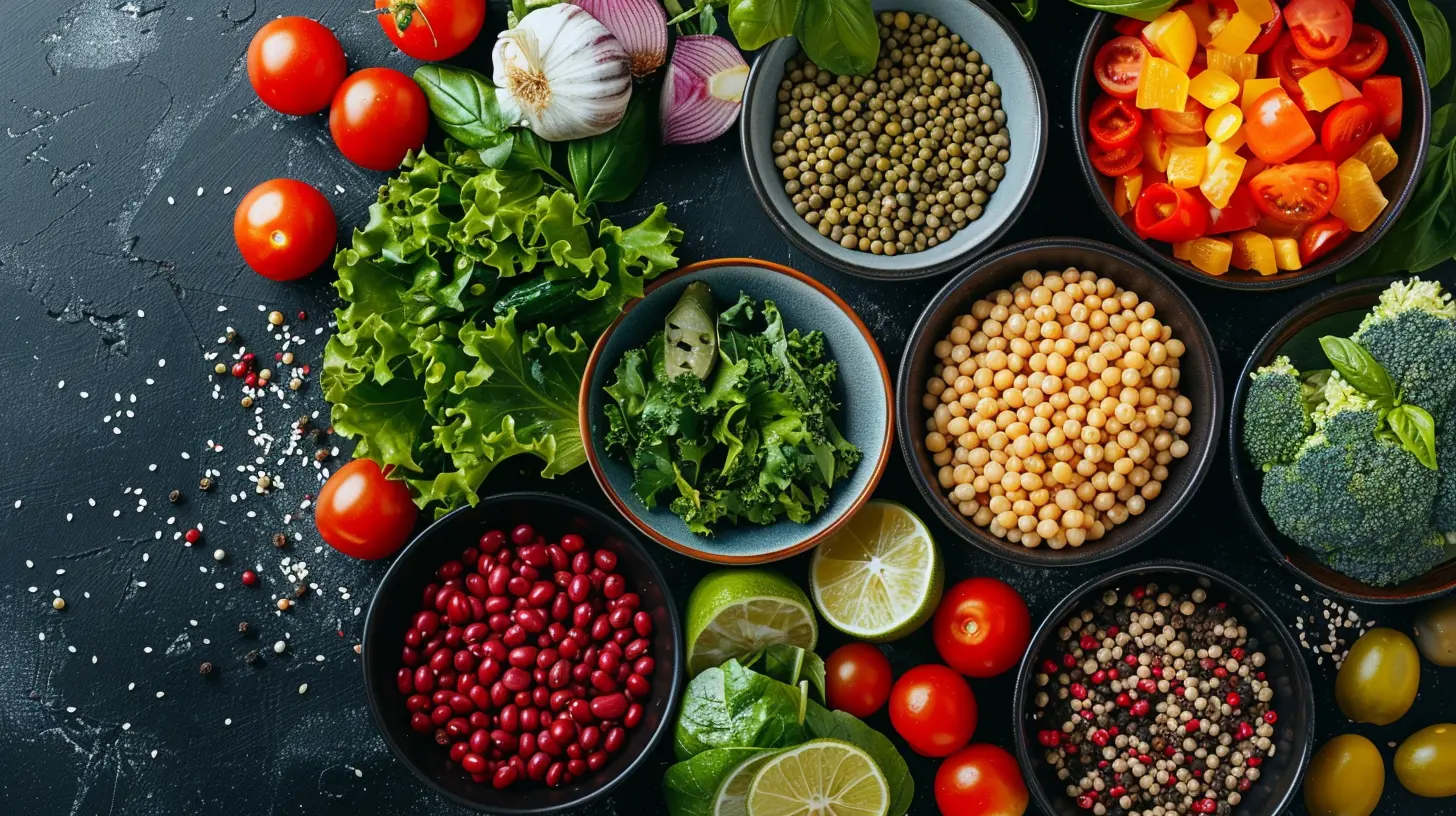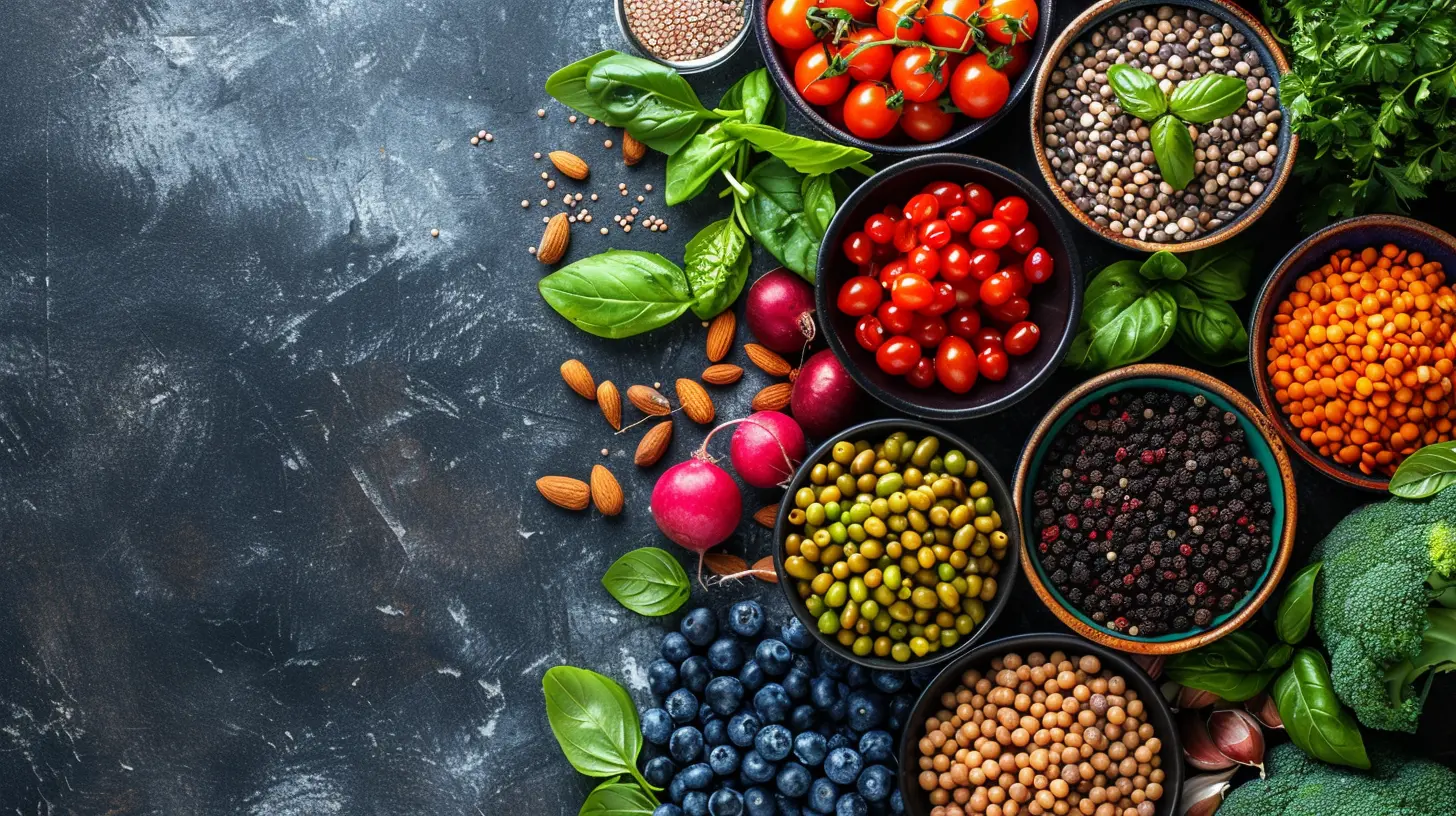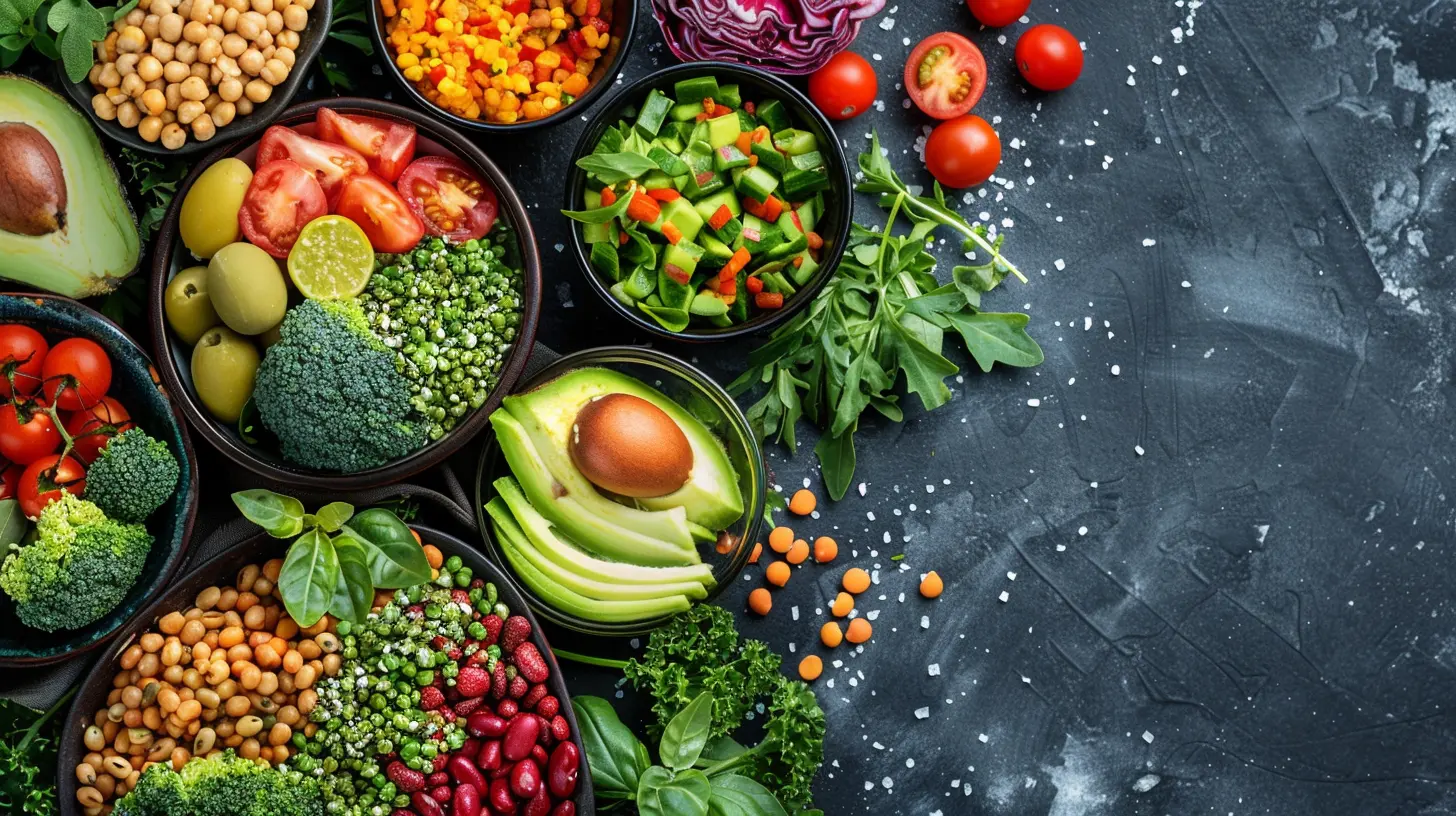How Plant-Based Diets Can Support Weight Management Goals
7 May 2025
Maintaining a healthy weight can feel like an uphill battle, especially with all the conflicting diet advice out there. But what if the key to sustainable weight management isn't another fad diet, but instead a simple shift to plant-based eating?
A plant-based diet, rich in whole foods like fruits, vegetables, legumes, and grains, is not only great for your overall health but can also be a powerful tool in achieving and maintaining a healthy weight. Let’s break down how swapping out some (or all) animal-based foods for plant-based options can support your weight management goals. 
What is a Plant-Based Diet?
Before we dive into the weight management benefits, let’s define what we mean by a plant-based diet.A plant-based diet focuses primarily on foods derived from plants. This includes:
- Fruits and vegetables
- Whole grains (brown rice, quinoa, oats, whole wheat)
- Legumes (beans, lentils, chickpeas)
- Nuts and seeds (almonds, walnuts, flaxseeds, chia seeds)
- Plant-based proteins (tofu, tempeh, seitan, plant-based meat substitutes)
Some people follow a strictly vegan diet (avoiding all animal products), while others adopt a more flexible, plant-forward approach by reducing but not completely eliminating animal-based foods. Regardless of how strict you are, incorporating more plant-based meals can significantly impact your weight and overall well-being. 
Why Plant-Based Diets Work for Weight Management
So, why do plant-based diets make it easier to maintain a healthy weight? The reasons boil down to nutrient density, fiber content, and fewer empty calories.1. Naturally Lower in Calories
Plant-based foods, especially whole plant foods, tend to be lower in calories than processed and animal-based foods. A cup of leafy greens or a bowl of lentil soup will fill you up without adding excess calories.Compare that to a cheeseburger or fried chicken—these meals are often packed with calories and unhealthy fats that add up quickly. By choosing plant-based options, you naturally consume fewer calories while still feeling satisfied.
2. High in Fiber (Keeps You Full Longer!)
One of the biggest advantages of a plant-based diet is the high fiber content. Fiber is your best friend when it comes to weight management because:- It slows digestion, helping you feel full longer.
- It stabilizes blood sugar, preventing hunger spikes.
- It improves gut health, which plays a role in metabolism.
For instance, a meal rich in beans, whole grains, and vegetables will keep you full for hours, whereas a highly processed meal can leave you hungry soon after eating. That means fewer cravings and less snacking!
3. Supports a Healthy Metabolism
Believe it or not, the quality of your diet affects how efficiently your metabolism burns calories. Many plant-based foods, such as chili peppers, green tea, and fiber-rich whole grains, boost metabolism naturally.Additionally, plant-based eaters often have a leaner body composition, which can further enhance metabolic efficiency. Studies show that people who follow plant-based diets tend to have lower body mass indexes (BMIs) than those who consume high amounts of animal products.
4. Reduces Processed and High-Fat Foods
One of the key weight loss pitfalls is the overconsumption of processed foods high in unhealthy fats and sugars. Fast food, sugary snacks, and fried foods are often packed with empty calories that lead to weight gain.By focusing on whole, plant-based foods, you're naturally reducing your intake of these harmful ingredients. Instead of calorie-laden processed snacks, you’ll be reaching for a handful of almonds, a piece of fruit, or a bowl of oatmeal—foods that fuel your body without unnecessary additives.
5. Encourages Mindful Eating
Switching to a plant-based diet often promotes a more mindful approach to eating. Rather than eating out of boredom or stress, plant-based eaters tend to plan their meals carefully, focusing on nutrient-dense foods that nourish the body.When you become more aware of what you're eating, you're less likely to overeat unhealthy foods. Plus, enjoying fresh, colorful, and flavorful dishes makes mealtime more satisfying and enjoyable! 
How to Transition to a Plant-Based Diet for Weight Loss
Now that we know why plant-based diets are beneficial for weight management, how can you start incorporating more plant-based meals into your lifestyle? Here are some practical steps:1. Start Small
You don’t have to go fully vegan overnight. Begin by swapping out one or two meals a day with plant-based alternatives. Try oatmeal for breakfast instead of eggs and bacon, or opt for a lentil soup instead of a meat-based dish for lunch.2. Focus on Whole Foods
Stick to whole, minimally processed foods. While there are plenty of plant-based processed foods on the market, such as vegan cheese and plant-based burgers, they can still be high in calories, sodium, and unhealthy fats. Choose fresh, whole ingredients whenever possible.3. Load Up on Protein and Healthy Fats
One concern people have about plant-based eating is whether they'll get enough protein. Thankfully, there are plenty of high-protein plant options, such as:- Lentils
- Chickpeas
- Tofu and tempeh
- Nuts and seeds
- Quinoa
Adding healthy fats like avocados, nuts, and olive oil will also keep you full and satisfied.
4. Watch Your Portion Sizes
Even with healthy plant-based foods, portion control still matters. While it’s harder to overeat whole foods, consuming too many nuts or large portions of rice can still lead to excess calorie intake. Listen to your hunger cues and eat until you're satisfied, not stuffed.5. Stay Hydrated
Sometimes, our bodies confuse thirst with hunger. Drinking plenty of water, herbal teas, or infused water throughout the day can prevent unnecessary snacking and help support digestion.6. Be Patient with Your Progress
Weight management is a long-term game, not a quick fix. Give your body time to adjust and enjoy the journey of discovering new, delicious plant-based meals. Small, sustainable changes lead to lasting results!
What About Common Myths?
There are plenty of misconceptions about plant-based eating, so let’s clear up a few:- "Plant-based means boring and bland." → Not true! With the right spices, herbs, and seasonings, plant-based meals can be just as flavorful (if not more) than meat-based dishes.
- "You won’t get enough protein." → Many plant-based proteins provide all the essential amino acids your body needs. You just need to eat a variety of foods.
- "You'll always feel hungry." → The fiber and protein in plant-based meals keep you full for longer than processed foods.
Final Thoughts
A plant-based diet is an excellent way to support your weight management goals while also improving overall health. By focusing on whole foods, increasing fiber intake, and reducing processed and high-calorie meals, you naturally create a sustainable and enjoyable way of eating that helps with weight loss and maintenance.If you’ve been considering making the switch, there’s no better time than now to incorporate more plant-based meals into your routine. Your body (and the planet) will thank you!
all images in this post were generated using AI tools
Category:
Plant Based DietAuthor:

Tiffany Foster
Discussion
rate this article
4 comments
Helen McPhail
It's inspiring to see the positive impact of plant-based diets on weight management! Embracing this lifestyle can be a journey, and it's important to remember that every small change counts. Listen to your body, nourish it with kindness, and celebrate each step towards a healthier you. You’ve got this!
May 17, 2025 at 3:20 AM

Tiffany Foster
Thank you for your encouraging words! Every small step truly makes a difference on the journey to better health. Let's continue to inspire each other!
Mason McIntire
Plant-based diets effectively support sustainable weight management goals.
May 16, 2025 at 2:49 PM

Tiffany Foster
Absolutely! Plant-based diets are rich in nutrients and fiber, promoting satiety and helping to maintain a healthy weight while minimizing environmental impact.
Karen Graham
This article effectively highlights the benefits of plant-based diets for weight management. It presents compelling evidence on how whole foods can aid in achieving and sustaining healthy weight goals. Great insight!
May 7, 2025 at 3:18 PM

Tiffany Foster
Thank you for your positive feedback! I'm glad you found the article insightful and informative on the benefits of plant-based diets for weight management.
Sabina Dorsey
Great read! It’s inspiring to see how plant-based diets can not only support weight management but also promote overall health. I love discovering new ways to make delicious meals while staying on track!
May 7, 2025 at 3:25 AM

Tiffany Foster
Thank you for your kind words! I'm glad you found the article inspiring and helpful in your culinary journey.



